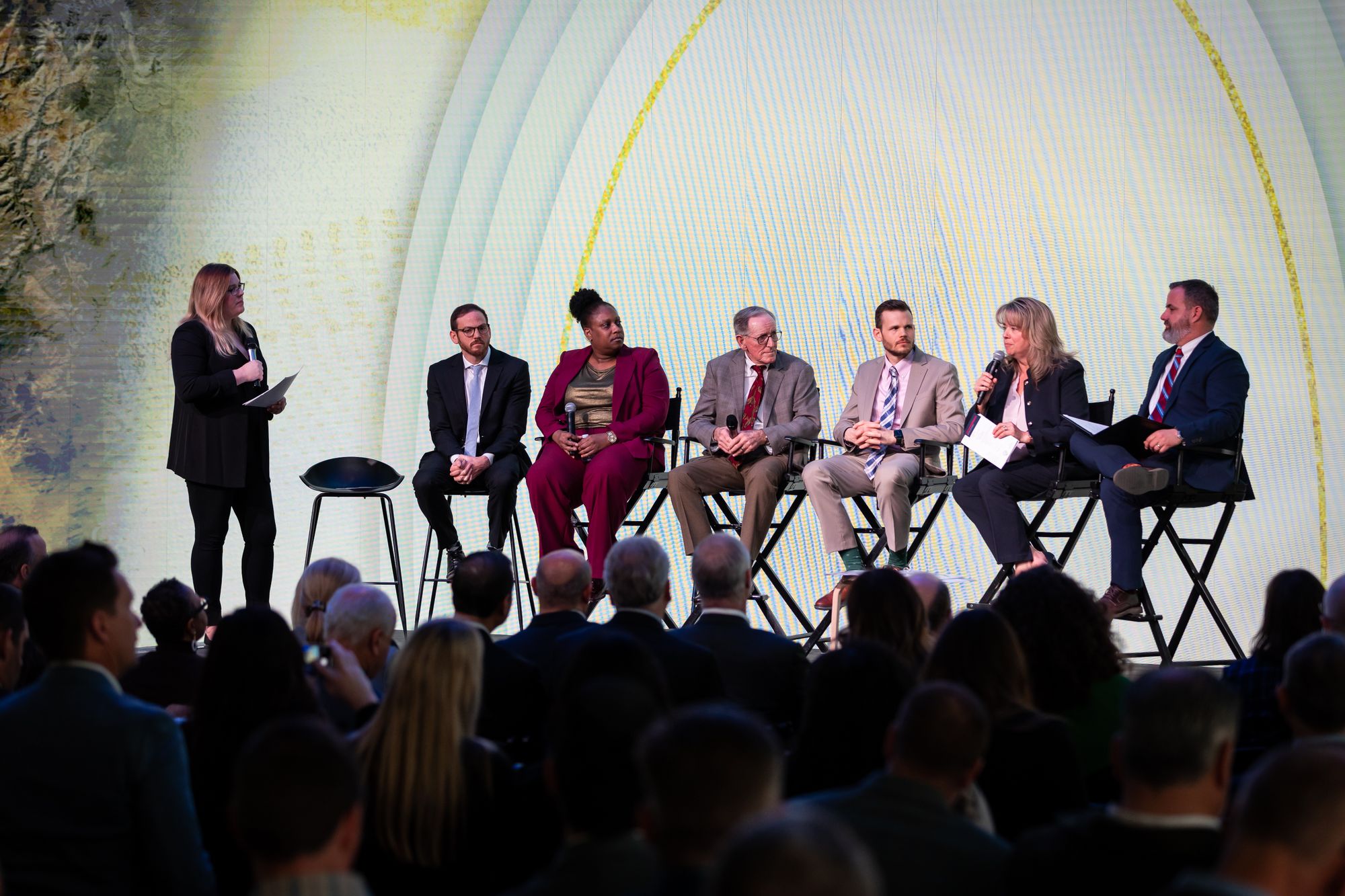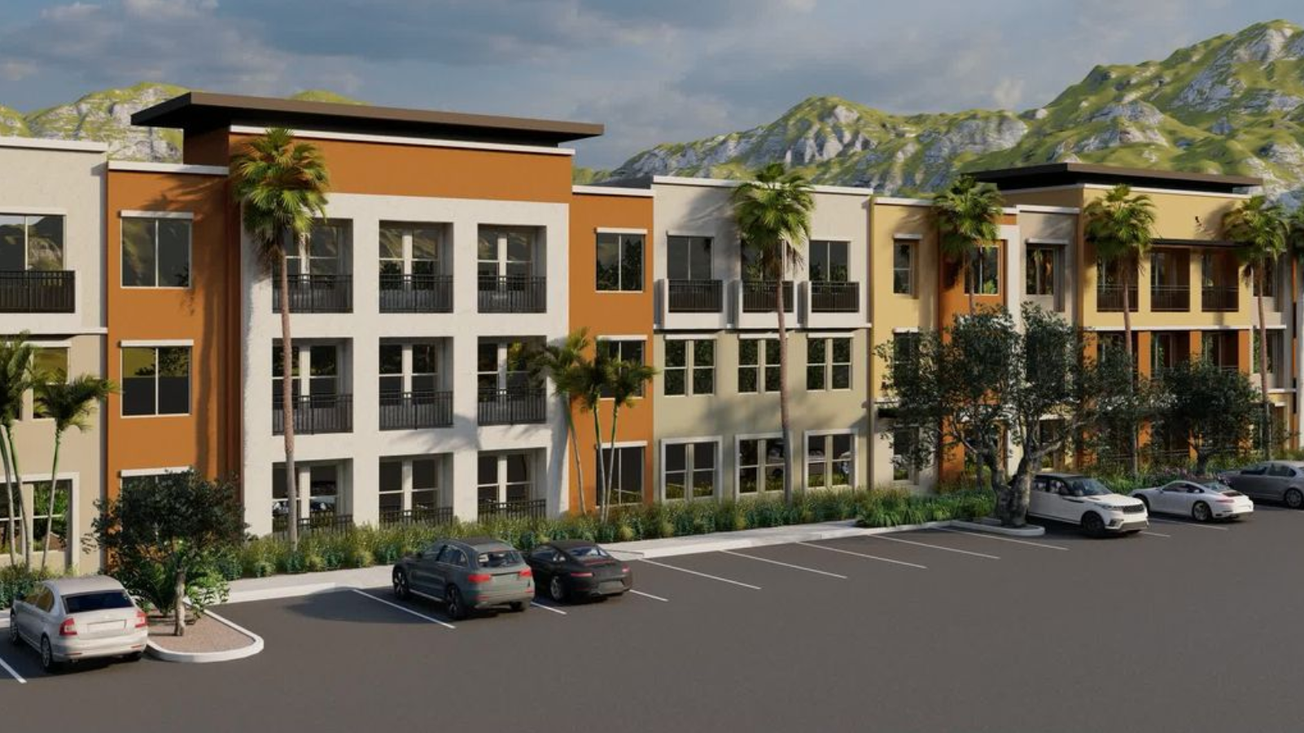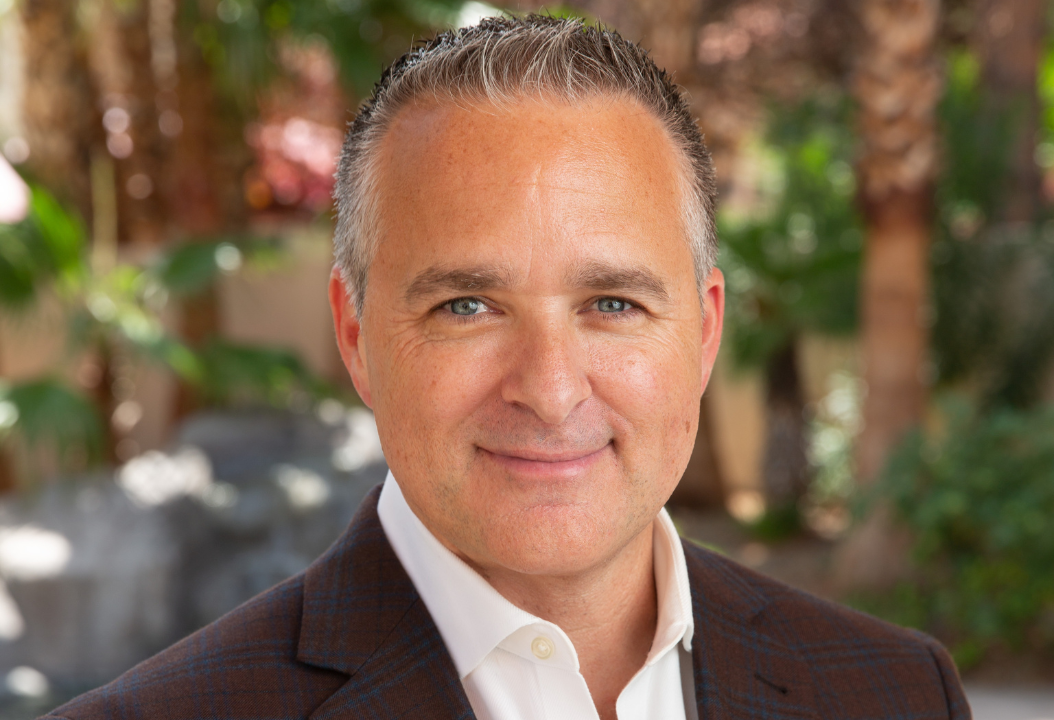Subscribe to our email newsletter and follow us on social media.
LAS VEGAS, NV - Yesterday, the Las Vegas Global Economic Alliance (LVGEA) hosted its State of Economic Development event. This year, the annual event shifted from a public to an investor-only program with over 300 attendees and brought together from the private and public sectors to provide insight into economic investments being made in the Greater Vegas region.
The program began with a panel discussion with current Nevada Governor’s Office of Economic Development (GOED) Director Tom Burns as well as the three most recent former directors: Michael Brown, Paul Anderson, and Steve Hill.
“Sometimes there’s a sense that if we sit back, companies will just come to us,” said GOED Director Burns. “That’s not true. We live in a very competitive environment and other states have very aggressive economic development plans. We’re not the only ones on the playing field.”
Next, a panel of economic development leaders from Southern Nevada municipalities provided insights and updates on $1B in new developments and initiatives within their jurisdictions.

Jeremy Aguero of Applied Analysis then moderated a fireside chat with Sam Joffray, President & CEO of the Las Vegas Super Bowl Host Committee and Ryan Erwin, Chairman of the Las Vegas Super Bowl Economic Development Committee.
The game is expected to create $1+ billion in economic impact and approximately 5,000 jobs for the Greater Vegas region. But they say the exposure for the city will be more important than the money.
“The eyes of the world will be on Las Vegas,” said Erwin. “I believe we can turn this single event into a long-term economic development project for this community, so it isn’t just a one-time influx of money. Our goal is to turn this into an opportunity to showcase this city to businesses who aren’t already here.”
Finally, LVGEA President & CEO Tina Quigley took the stage, and channeling her inner Elvis, told the crowd we need, “a little less conversation, a little more action.” The theme of her segment: instead of talking about our problems, we need to start taking action.
“We do have a lot of work to do to reduce our vulnerability and to stay competitive with our neighbors,” said Quigley. “But the truth is, we have a tremendous number of individuals, businesses, and institutions doing amazing things in the region, and we need to do a better job of celebrating our achievements and promoting our region’s potential.”









